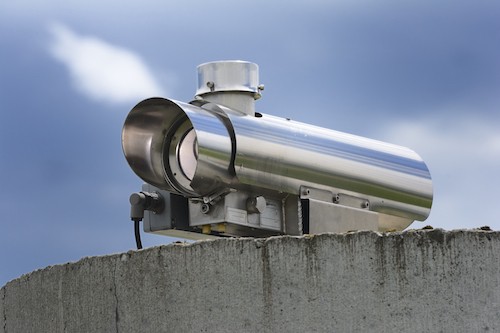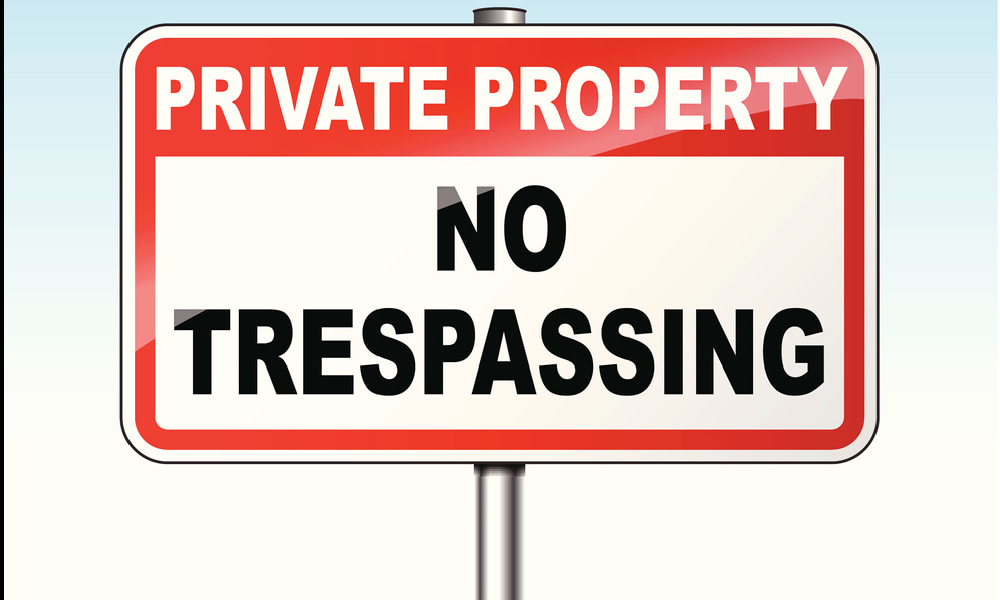
Tower crane safety and security is always a major concern on construction sites where cranes are being used. Of course, safety and security are always of paramount importance wherever construction is taking place, but it’s even more important when tower cranes are involved.
Having a standard operating procedure (SOP) is an important step in protecting your workers and materials. It can even protect your construction project itself as well as your timeline for completion. Security is an essential component of that SOP, and this guide will help you get a better understanding of how to ensure your site is safe.
How Common Are Tower Crane Accidents?

Unfortunately, tower crane accidents happen each year and the consequences are often devastating. The potential for loss of life from a tower crane accident is fairly high due to the sheer size of the crane, the weight of the load it may be lifting at the time of the accident, and the number of people at a busy worksite.
According to the Occupational Safety and Health Administration (OSHA) statistics, one out of every five workers killed on the job is a construction worker. There are four main causes of so many construction worker deaths, but OSHA refers to these as the Fatal Four:
- Falls account for approximately 33% of the deaths.
- Being struck by an object accounts for roughly another 11%.
- Electrocution comes in at 8.5% of fatalities.
- “Caught-in/between” causes 5.5% of the deaths.
This latter category includes workers who are caught in or compressed by equipment. It also includes those unfortunate enough to be hit or crushed by falling material, collapsing structures, or equipment like cranes. The United States Bureau of Labor Statistics (BLS) has statistics showing an average of 44 workers die each year from crane accidents. That’s not counting non-workers and an ever-increasing number of trespassers!
Trespassers and the Allure of Tower Cranes
The definition of trespassers has evolved over the years. This group sometimes includes:
- Children looking for a new playground
- People hurrying home via a shortcut through your construction site
- Urban explorers
These “urban explorers” are the most common trespassers — and the greatest threat to your bottom line — and include people who break into construction sites specifically to film themselves doing dangerous stunts on cranes. They then post their “daring deeds” on social media in an effort to gain fame and fortune. Here’s what you need to know about urban explorers:
- Some of these thrill-seekers have expanded past just breaking in and clambering all over dangerous equipment.
- They’ve discovered they can build a following and generate revenue with illegal antics.
- Unfortunately, this only encourages others to follow in their footsteps!
- Social media provided a platform for them to show off their ever-more-dangerous stunts.
- Instead of simply showing panoramic photos taken atop high buildings, they are dangling or even parachuting from those same buildings.
- Now they’ve turned their attention to tower cranes.
These urban thrill-seekers have already placed first responders in danger when rescuing them from cranes. The inevitable will eventually happen, and thrill-seekers will face serious injury or death after scaling tower cranes.
Although tragic, these accidents will also have devastating consequences for the construction companies in charge of the cranes involved in the incidents. For this reason, it’s important to incorporate trespasser detection and deterrence into companies’ tower crane safety and security plans.
Improving Tower Crane Safety & Security

A thorough understanding of the dangers associated with cranes is the essential first step in improving crane safety on the job site. The biggest hazards posed are listed below:
- Power line contact often results in the electrocution of anyone in contact with the crane.
- Exceeding the capacity rating of the crane can result in it tipping over or buckling, injuring or killing anyone within range.
- Failure to properly support the crane with outriggers can cause it to turn over.
- Inadequately supporting the boom during disassembly can cause it to collapse onto any nearby workers.
- Not providing a solid, stable, level foundation puts everyone around the crane in danger if it starts slipping or tipping over.
- Good visibility is essential for safely operating a crane!
- Falling loads and workers caught in the path of the crane are generally the result of poor visibility on the part of the crane operator.
So, how can you decrease the chances of a crane accident occurring on your job site? First, make sure that all cranes are regularly inspected, properly maintained, and always used in accordance with all relevant safety protocols. OSHA standards specify proper crane operating standards and should always be strictly adhered to whenever a crane is on your job site.
Some of these regulations include:
- Allowing only qualified and properly trained workers to operate the crane.
- Having each crane’s load capacity clearly marked on it.
- Ensuring excellent visibility by making sure that the cab is free of obstructions.
- Using spotters trained in approved hand signals or equipped with a radio to communicate clearly with the crane operator.
- Using warning devices to signal workers and bystanders whenever a crane begins lifting a load.
By following OSHA regulations and industry best practices, you can greatly reduce the chances of a devastating crane accident on your job site. Having proper security measures in place can help prevent any after-hour accidents that might occur when your job site is closed, too.
The Safety Benefits of a Video Camera Alarm System
Imagine the devastating consequences of a trespasser suffering a serious injury or death on your worksite. Besides the guilt and blow to workplace morale, it would cause a public relations nightmare. Add in a possible lawsuit and a rise to your insurance costs and the effects are potentially devastating. Fortunately, there are steps you can take to prevent such an incident.
- One of the most important is installing a good video camera alarm system to alert you to the presence of trespassers before they can cause mischief or begin dangerous stunts.
- CCTV surveillance systems can be monitored by security professionals with law enforcement experience during the critical overnight hours, from 6 pm to 6 am.
- Once a trespasser is detected, the system will activate flashing blue and red lights, issue an audible warning, and notify law enforcement authorities.
These surveillance systems can also help with other tower crane safety and security priorities by taking note of potential problems before they happen and:
- Notify you of vandalism that might affect equipment safety.
- Flag improper maintenance issues or a failure to conduct proper safety checks.
- Identify any other unsafe practices that might contribute to an accident.
Having a tower crane on your worksite raises all kinds of safety and security concerns. Following relevant rules and regulations, as well as industry best practices will dramatically decrease the chances of an accident involving your tower crane. Trusting the expert security professionals at Mobile Video Guard to highlight safety errors and handle trespassers will give you additional peace of mind.
Work with the CCTV Security System Pros

Are you looking for a security system to monitor your construction site, festival, workplace, or other event or location? Contact us today to speak with a security expert about how we can create a security system tailored specifically for your site or function. We’re also happy to answer any remaining questions you may have concerning tower crane safety and security.




